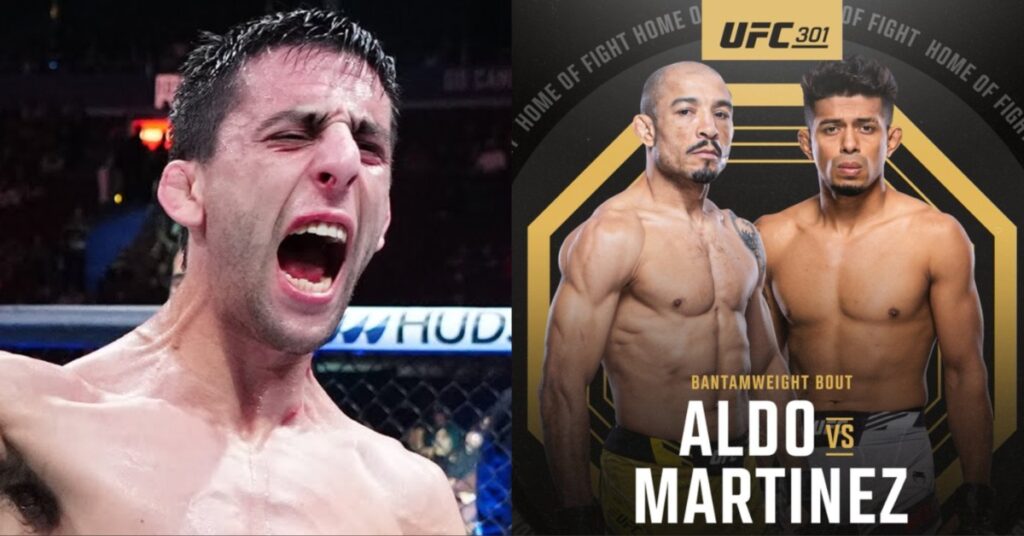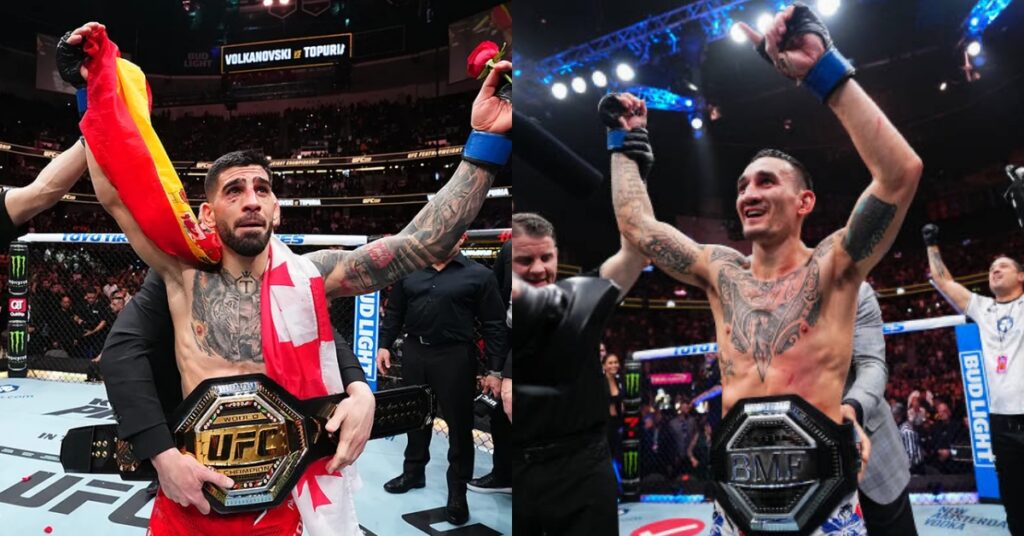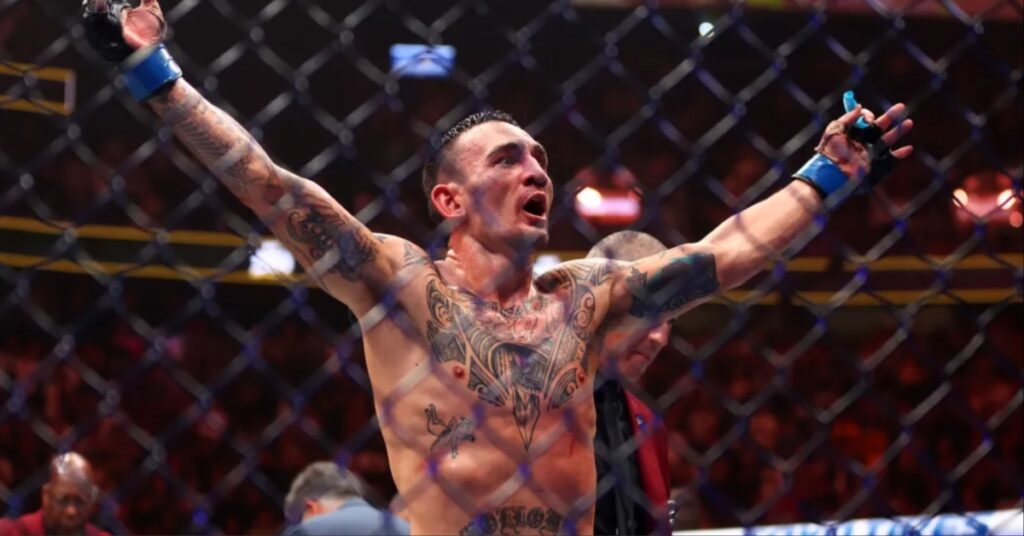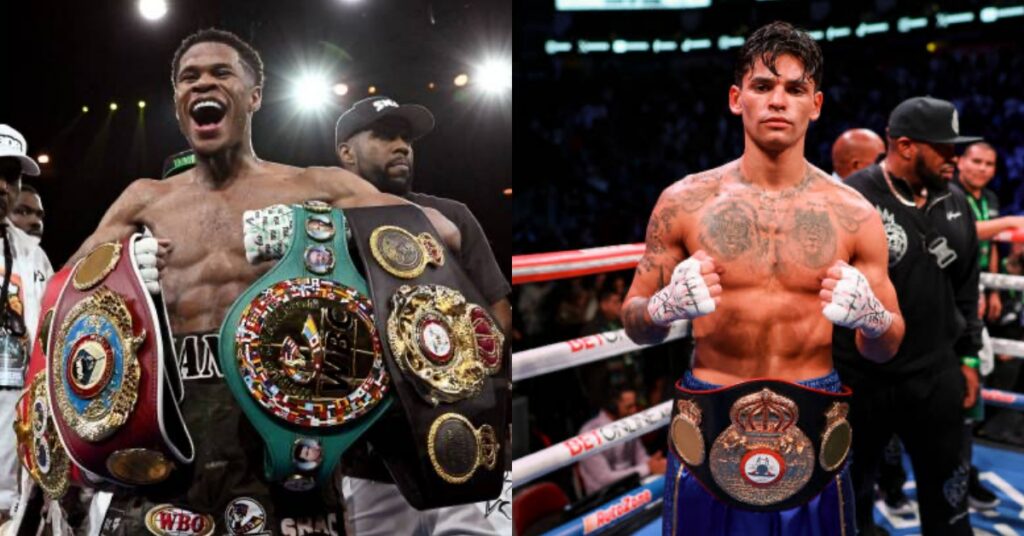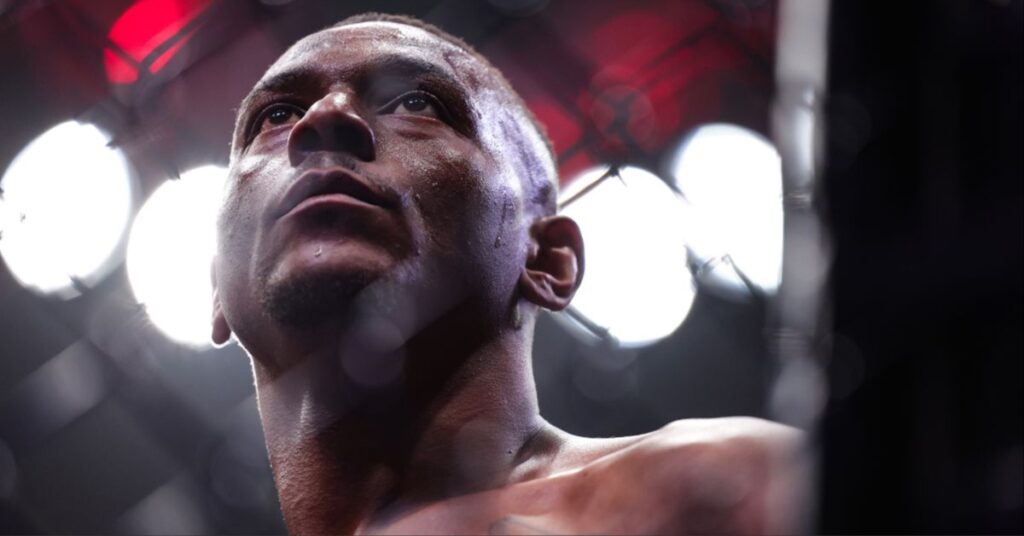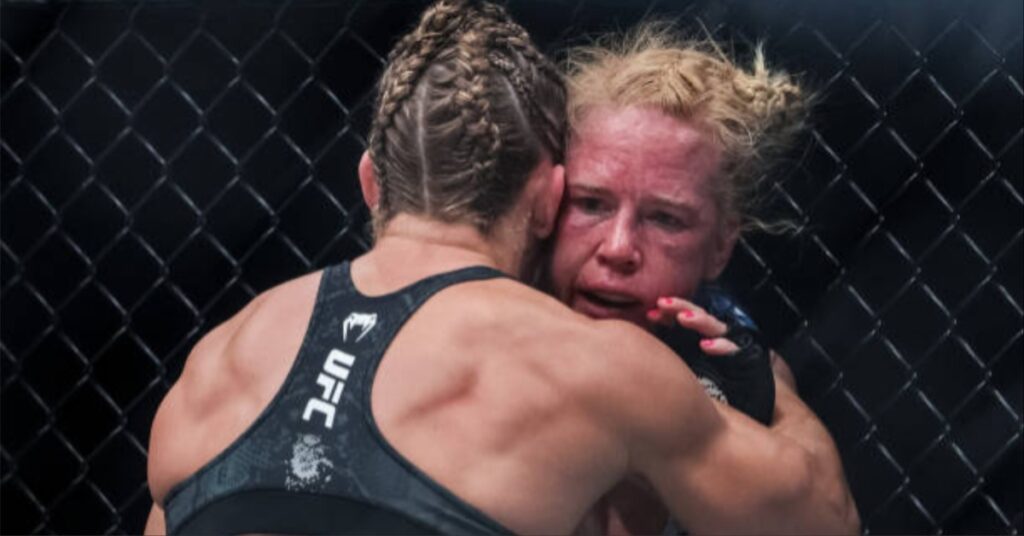And Now He’s Retired: Shane Carwin Calls It Quits After Brief and Terrifying Career

(Photo via Heavy/Fightday)
Shane Carwin never needed to fight. For the last 13 years, the former UFC Interim Heavyweight Champion has worked full-time as a design engineer, and he could have made that his entire life if he wanted to. But Carwin happened to be blessed with some extraordinary physical gifts — a level of athleticism that helped him become the NCAA Division II wrestling heavyweight national champion in 1999 while competing for Western State Colorado University, and the kind of eerie, inhuman punching-power that made him one of the most intimidating heavyweights in MMA history.
Unfortunately, Carwin’s supersonic rise to the top was derailed just as quickly as it began, first by a failed challenge against unified champion Brock Lesnar at UFC 116 — with Carwin eating his first career loss thanks to Lesnar’s unexpected resilience and a poorly-timed adrenaline dump — and then by a seemingly-endless series of injuries and surgeries. Inactive since his June 2011 decision loss to Junior Dos Santos, Carwin announced his retirement yesterday evening with a simple message on twitter: Officially retired 2day:-) thank you to my family, friends and fans! #dreambig GOD BLESS!!!
Even before he entered the UFC, Carwin was something of an urban legend, a spook story that MMA heavyweights told their kids at night. Making his professional debut in October 2005, Carwin’s first eight fights all ended in first-round stoppage victories, half by chokes, half by way of his enormous fists. During one stretch in 2006-2007, he stopped three consecutive opponents in the first minute of the fight.
In 2008, Carwin got his well-deserved invite to the UFC, where he faced Christian Wellisch at UFC 84. Here’s what happened:
Wellisch’s flying mouthpiece spoke for itself: There was a new heavyweight contender in town, and he was not a man you’d ever want to stand-and-bang with. After a follow-up fight with Neil Wain ended in similarly brutal fashion, Carwin was given a step up in competition against Gabriel Gonzaga. And while Gonzaga didn’t make it easy — breaking Carwin’s nose and taking him to the mat in the opening moments of the match — Carwin only needed to get back to his feet and land one short right hand to end Napao’s night. The whole thing took 69 seconds.
Seizing the moment, the UFC decided to book Carwin in a title fight against Lesnar at UFC 106, scheduled for November 2009. But Lesnar’s own health issues led to the match being postponed twice then canceled altogether, and the UFC instead had Carwin fight Frank Mir for the UFC Interim Heavyweight Title at UFC 111 in March 2010. Mir managed to last nearly four minutes in the cage with Carwin — something no other fighter had been able to do up until then — but in the end, he took a savage beating like the rest of them, and Carwin’s record increased to 12-0 with all wins in the first round.
And that’s when the wheels started to come off for the Engineer of Pain. His long-awaited heavyweight title fight against Brock Lesnar in July 2010 was a case-study in snatching defeat from the jaws of victory. After molly-whopping Lesnar for the entire first-round, Carwin found himself completely gassed going into round two, a round that had only been a hypothetical concept for the first five years of his career. Lesnar survived to the bell, dusted himself off, and kicked off the second frame by taking Carwin down and setting up an arm-triangle choke. Carwin didn’t have the energy to defend any of it, and just like that, his Interim belt was sucked back into the Lesnar vortex.
For the rest of his career, Carwin would spend more time on operating tables than he spent fighting in the Octagon. First, he pulled out of a scheduled fight with Roy Nelson due to back pain, and wound up having surgery for it. His return to the UFC after a year-long layoff was supposed to be a gentle rebound against Jon Olav Einemo at UFC 131, but when Brock Lesnar had to withdraw from the main event due to the return of his diverticulitis, Carwin was drafted to face Junior Dos Santos on short notice. It didn’t go well. Carwin lost his second fight in a row (a lopsided unanimous decision this time), and it seemed like his days as a top contender were officially over. And they were. He just didn’t know it yet.
A few months later, a frightening bout of temporary paralysis led to Carwin undergoing another back operation. By the summer of 2012, Carwin was seemingly recovered, and was booked as a coach on TUF 16 opposite Roy Nelson. But one month before Carwin was scheduled to fight Nelson at the TUF 16 Finale, he was forced to drop out due to a knee injury.
Since then, we’ve been waiting for the inevitable. At 38 years old, Carwin’s prime competitive years were running out to begin with, and as he dealt with years of major injuries, the heavyweight division evolved without him. In their prime, Carwin and Brock Lesnar were so massive, so powerful, and so dominant that UFC fans began to suggest a new cruiserweight division, because honestly, how were these 240-pounders supposed to compete with those guys? But in the recent absence of the UFC’s biggest big men, the heavyweight class has been reclaimed by lighter, faster heavyweights — Cain Velasquez, Daniel Cormier, Junior Dos Santos. That’s the current reality. But who knows what it might have been if Carwin and Lesnar hadn’t been plagued by constant health issues?
Shane Carwin was a ferocious competitor, and a friend of our site when he wasn’t insulting us. (Don’t worry we squashed that beef.) He deserved to have a longer career in the sport, and we’re sad to see it end like this. But it would have been much sadder if Carwin tried to keep fighting through his injuries because it was the only thing he had. Good luck, Shane, and thanks for the memories…

